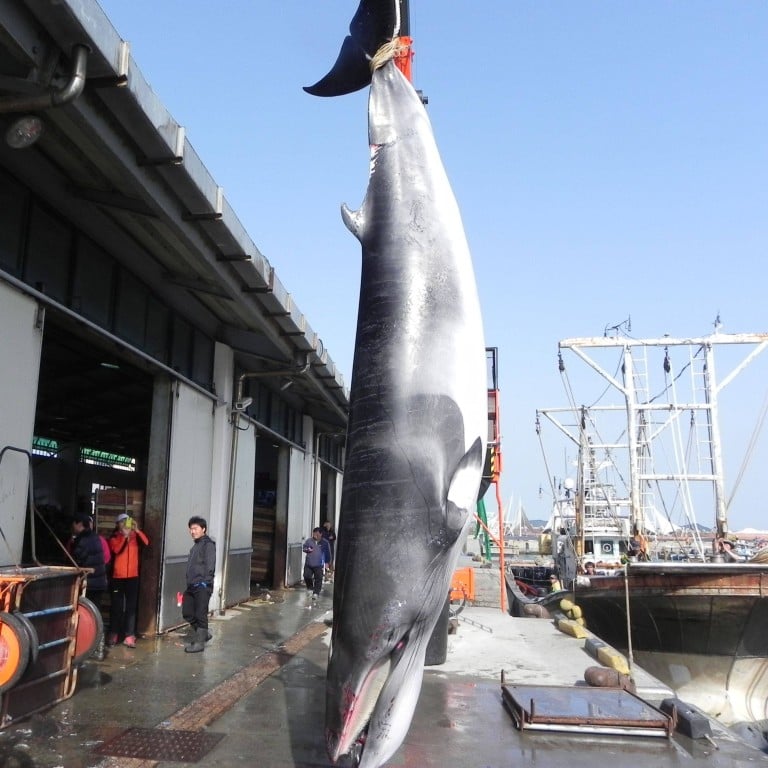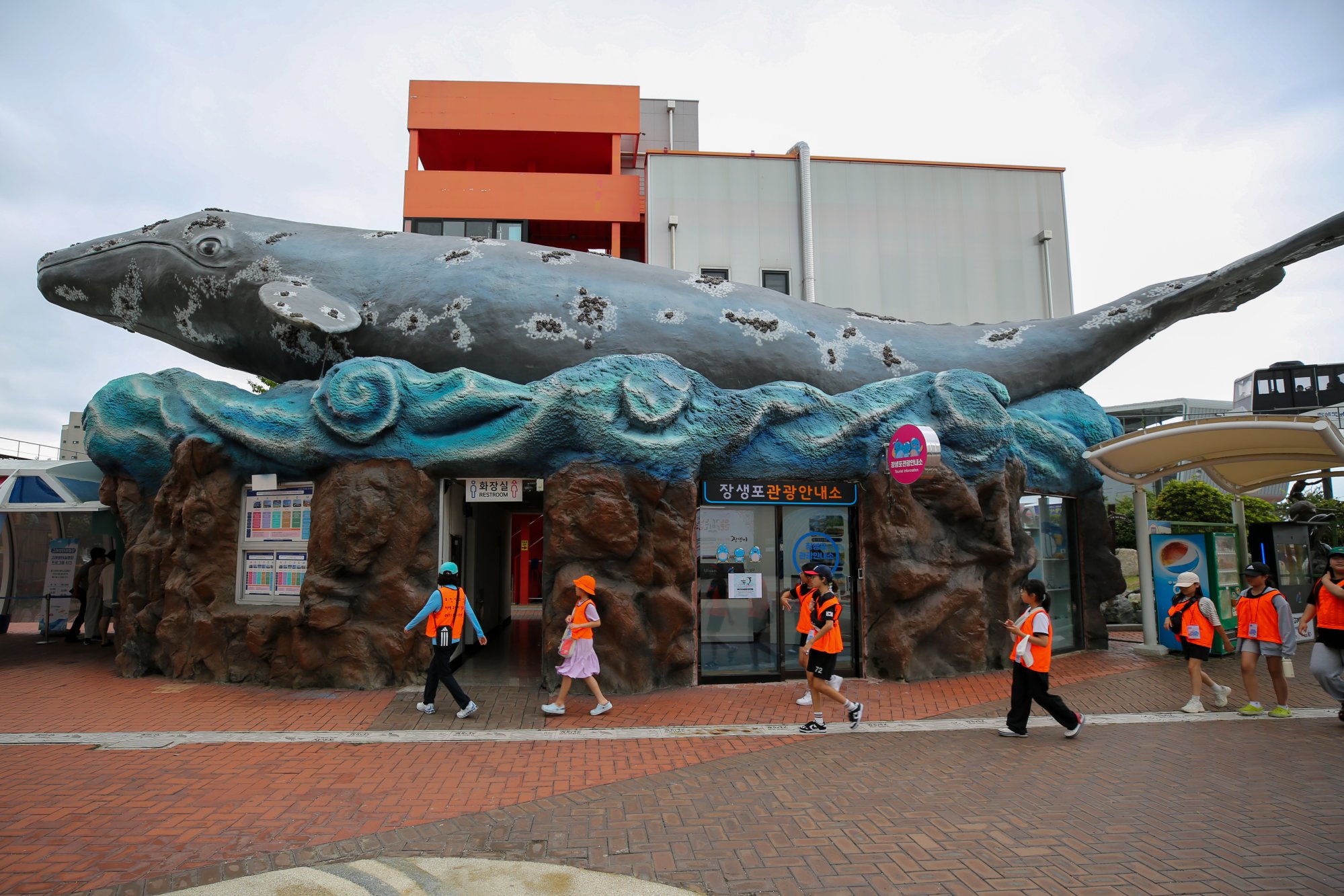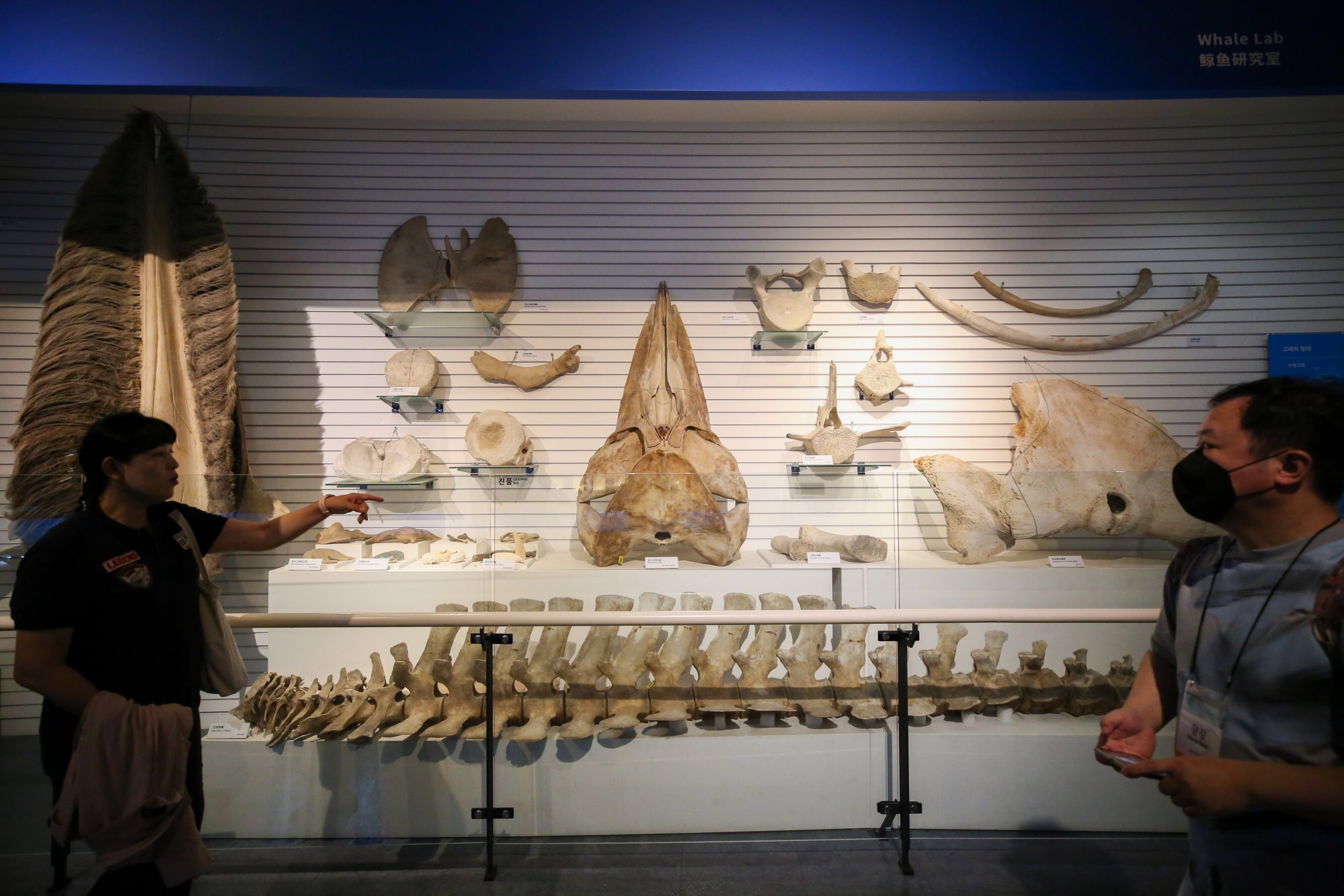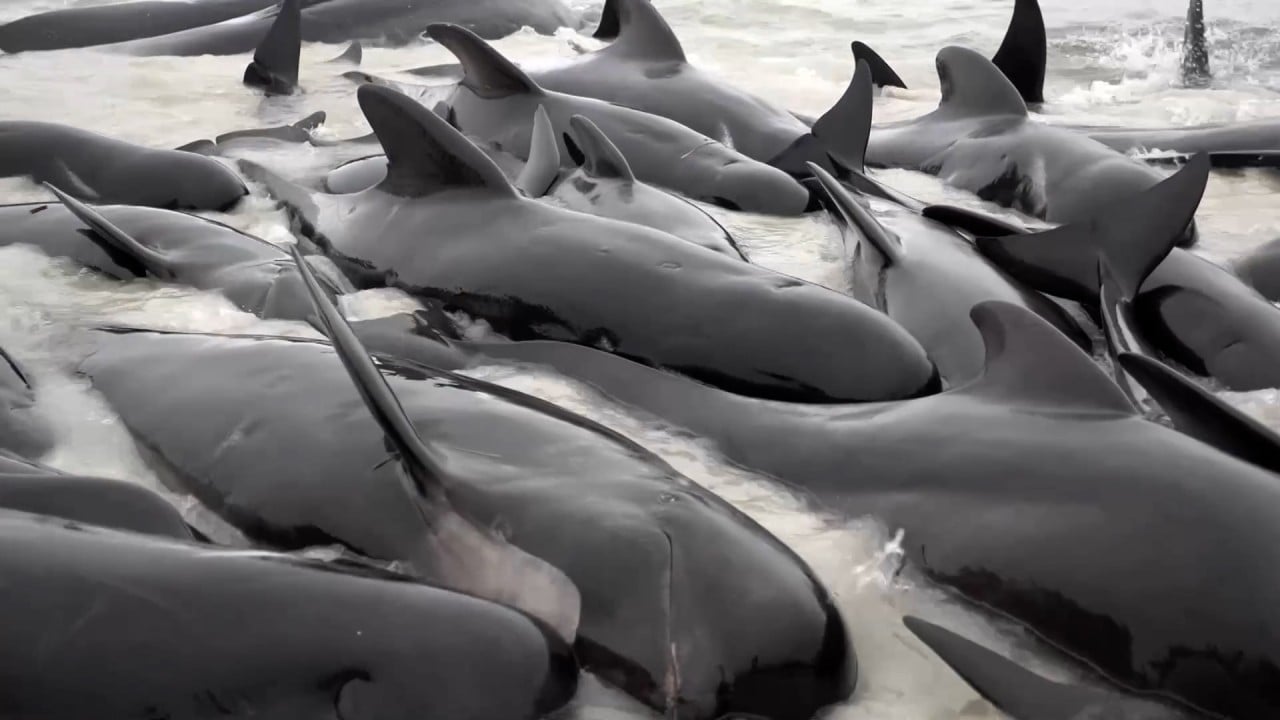
South Korea urged to ban sale of whale meat disguised as ‘lotto in the sea’ bycatch
- The demand comes as South Korea’s bycatch of whales remains suspiciously high compared with other countries
- But activists face challenges ranging from sustained demand for whale meat in the country to lack of interest in the issue among Korean politicians
A new bill introduced earlier this year by 15 lawmakers marks the first step towards a sweeping ban on the consumption of whale meat in the country, the campaigners said.
“South Korea is the only country in the world that protects cetacea with laws, while allowing the consumption of their meat at the same time,” Jo Yak-gol, head of the protectionist group Hot Pink Dolphins, told This Week in Asia.
South Korea banned whale poaching in 1986 after it joined the International Whaling Commission’s moratorium on commercial whaling.
‘Non-starter’: will Japan ‘walk away’ from Indo-Pacific trade pact over whaling?
Under existing law, a fisherman must immediately release a whale if it gets accidentally netted alive. If a whale is found dead, they must quickly report the bycatch to the Coast Guard, which will inspect the carcass to make sure it bears no harpoon marks. If checks show there are no such marks, a permit is issued that will enable the fisherman to auction the bycatch off as fair game.
Netting a whale this way is known locally as a “lotto in the sea”, because a full-grown minke whale, for example, fetches as much as 200 million won (US$150,000).
On August 3, prosecutors in the southeastern city of Pohang arrested five people, including a skipper, for poaching nine minke whales between January and June this year.
To cover up evidence, they used untraceable illegal mobile phones for communication and dismantling whales at sea right after poaching them, prosecutors said. Dismantling refers to the removal of whale meat from other parts of its body.
Activists said poaching and smuggling were believed to make up for the gap between the supply and the demand, as whale meat supplied through bycatch was not enough to meet the demand.
But illegal netting of whales disguised as fair bycatch is no less serious, said Lee Yong-ki, a leader at the Korea Federation of Environment Movement (KFEM), as the number of such accidental catches is significantly higher than in other countries.
Government statistics show 822 cetacea – including whales, porpoises and dolphins – were reported as bycatch last year alone, although overall cetacean bycatch has been declining from 2,014 cases in 2019 to 1,350 in 2020 and 1,066 in 2022.
“We have firm rules and systems under which all whales and dolphins entangled in nets accidentally must be immediately reported to government authorities ... That’s why the cases of bycatch in this country appear so high”, an official of the fisheries ministry told This Week in Asia on condition of anonymity.
Against this backdrop, independent lawmaker Yoon Mi-hyang and 14 other politicians in January introduced an amendment to an existing law on the protection of maritime environment, with a view of prohibiting “intentional bycatch” and punishing offenders up to three years in jail or 30 million won in fines.
The new amendment also calls for Coast Guard inspections rather than cursory checks with naked eyes of netted whales, but activists want more drastic measures, including the formation of a database to prevent fishermen from repeating an illegal bycatch disguised as accidental.
“We welcome this amendment bill, but chances of it being passed at parliament remain unclear due to the lack of interest in it among the two major political parties [the Democratic Party of Korea and the People Power Party]” and fears of a backlash from fishermen and whale meat restaurants, Lee of KFEM said.

The southeastern city of Ulsan, South Korea’s industrial hub, was traditionally known as one of the region’s whaling hubs until the country joined a global moratorium on whaling in 1986.
Dismantling of whale carcasses happened at its southern port Jangsaengpo, where local authorities now seek to bolster tourism with a focus on whales and dolphins, ranging from a whale museum, an aquarium with four dolphins, to whale-watching boat trips after the 1986 whaling ban.
However, six whale meat speciality restaurants still operate at Jangsaengpo, as people who have never forgotten the taste of whale meat continue to visit the city, which was once designated as “whale meat district”.

Nationwide, there are some 120 whale meat restaurants, mostly in southeastern port cities such as Ulsan, Pohang and Busan in 2021, according to local news reports.
“Whale meat used to be Ulsan’s most famous delicacy, but whale meat restaurants are now in decline” because of rising whale meat bidding prices and growing public resentment, said Yoon Kyung-tae, 56, who operates one of the six whale meat restaurants at Jangsaengpo.
If fishermen follow the existing rules and release the whale alive from nets, they would be left only with destroyed nets and fishing gear without any compensation, causing them to wait for the whale to die and report it as an accidental catch, said Jo from Hot Pink Dolphins.
“The cause of the illegal bycatch comes from the paradox that maritime animals are legally protected while whale meat consumption is being allowed,” Jo added.


